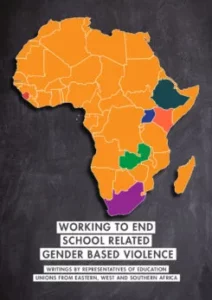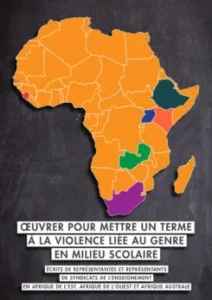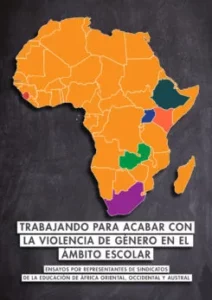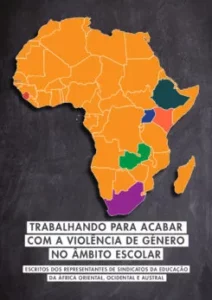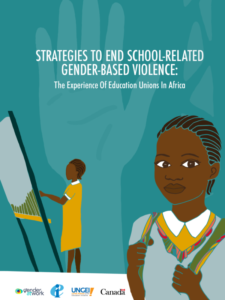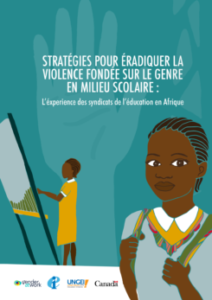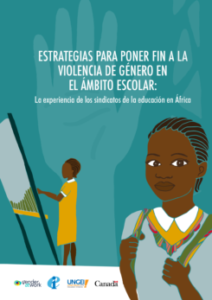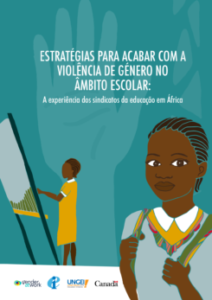Changing norms and practices
in and around schools
to end gender-based violence
Education Unions Take Action to End SRGBV was a four-year programme involving nine unions in seven countries in Southern, Eastern and West Africa, supported by the United Nations Girls Education Initiative (UNGEI), Education International (EI) and Gender at Work and funded by Global Affairs Canada. Its scope was both broad and deep, reaching over 100,000 rank and file teachers and education sector staff in Africa and reshaping policy dialogue on SRGBV in global fora.
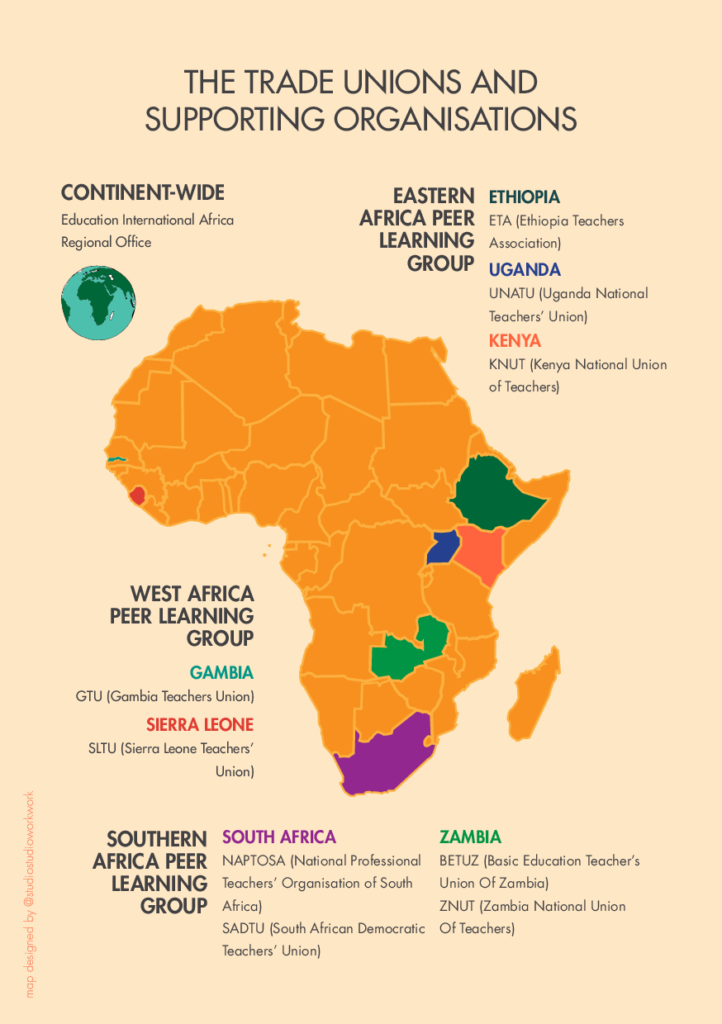
It’s not easy to talk about gender-based violence in and around schools. Stories of bullying, harassment, corporal punishment or sexual assault, whether experienced by ourselves or others, can leave us feeling angry, fearful, hopeless or ashamed. Having worked with education union leaders and members for over five years, G@W Associates are critically aware of this challenge. Whenever teachers and unionists get together to discuss School-Related Gender-Based Violence (SRGBV), they fall into a serious, attentive mood. People often speak in whispers. They speak with urgency. They listen carefully with deep concern. When teachers and union members share stories of SRGBV they have heard about or experienced themselves, they are quickly moved to action. They find inspiration in a shared goal of eliminating gender-based violence in their schools, unions and educational institutions and by extension in their homes and communities.
If it is difficult to tell these stories, it is even more difficult to write about them, to put them into the public domain for everyone to know and to judge. The documents we offer here speak to the courage and perseverance of women and men, union leaders and employees, teachers and staff who have not only “broken the silence” surrounding gender-based violence in educational settings but have also taken action to end it. These documents were created with the intent to inspire and inform unionists, teachers and those who collaborate them to create safe learning and working environments for all. For Gender at Work, they offer compelling evidence of the power of feminist, peer-based, experiential and reflective pedagogy to disrupt oppressive social norms and foster more equitable attitudes, behaviours and relationships.
Together these documents provide a sample of how education unionists are putting themselves in the forefront of efforts to end SRGBV. There are many more stories to be told. In sharing this documentation, we hope to stimulate further reflection on our practice of feminist pedagogy for systems change to create workplaces and learning environments free of violence and discrimination.
- When Teachers Share...
Working to End School-Related Gender-Based Violence: Writings by Representatives if Eastern, West and Southern Africa allows us to better understand what it actually “feels like” for union activists and teachers to confront gender-based violence in all its forms and for Gender at Work facilitators to support peer-based reflection on the norms and power dynamics that normalize gender-based violence in our homes, schools and unions.
It offers personal stories of change in complex organizational and social settings told by union change agents and G@W facilitators themselves.
- When Teachers Act...
Strategies to End School-Related Gender-Based Violence: The Experience of Education Unions in Africa gives an overview of many of the strategies different unions in the programme undertook to address SRGBV in their contexts.
This document explains the “what,” “how” and “to what effect” dimensions of the unions’ efforts across the continent.
- When Teachers Talk...
Education union representatives participating in an SRGBV learning encounter in Addis Ababa in February 2019 were invited to use their cellphones to film themselves and each other telling stories of change from their respective unions.
Their stories are captured in the video Education Unions Take Action to End School-Related Gender-Based Violence, available in English, French, Spanish and Portuguese.
For further information on the programme and our work to end SRGBV, visit the Midterm Report from 2018 and our blog.

